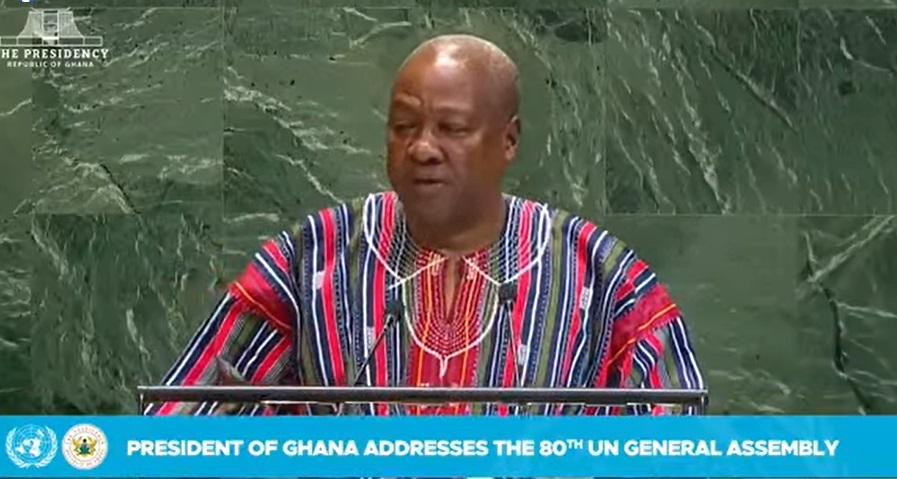
Ghana's participation in the 80th United Nations General Assembly (UNGA) has sparked sharp debate on state broadcaster GTV's "Current Agenda' programme, with panellists divided over the body's relevance to Africa's development.
A law lecturer at the University of Professional Studies, Accra (UPSA), Justice Abdullahi, dismissed the UNGA as a "talk show" that has delivered little for vulnerable nations. He argued that resolutions often remain symbolic because of the veto powers controlled by a few powerful states.
"Nothing useful really turns up from the resolutions that are passed. Over the years, those with political and economic might have used it to their advantage, leaving the rest of us to fend for ourselves," he said.
Even so, he described this year's gathering as unusually significant, citing conflicts in Ukraine, Palestine, and Africa. He praised President John Mahama's speech as "sterling," combining diplomacy with candour, and noted the dramatic walkout during Israeli Prime Minister Benjamin Netanyahu's address, calling it "the highest form of diplomatic embarrassment."
But Richard Suma, a leading member of the Movement for Change, went further, branding the UN "a waste of resources" for Africa.
"What has been our benefit from this UN over the decades of its establishment? Zero," he argued. He criticised African leaders for failing to act as a united bloc, contrasting their performance with that of regional organisations in Europe, Asia, and the Americas.
On reparations for slavery, Suma rejected President Mahama's call, saying African chiefs and families also played a role in the trade. "Even today, with the greed and selfishness we see, I fear history would repeat itself," he said.
Both panellists agreed that African governments should reconsider the cost of sending large delegations to the UNGA. Suma urged virtual participation to save resources, pointing to the example of China's president, who joined remotely.
He also drew a sharp contrast between major global conflicts, describing the Russia-Ukraine war as "an armed combat between equals" while portraying Palestinians as "virtually unarmed against a heavily armed opponent."
The debate highlights growing scepticism among African analysts about the continent's influence at the United Nations, even as leaders continue pressing for reforms, including permanent representation on the UN Security Council.





2 Comments